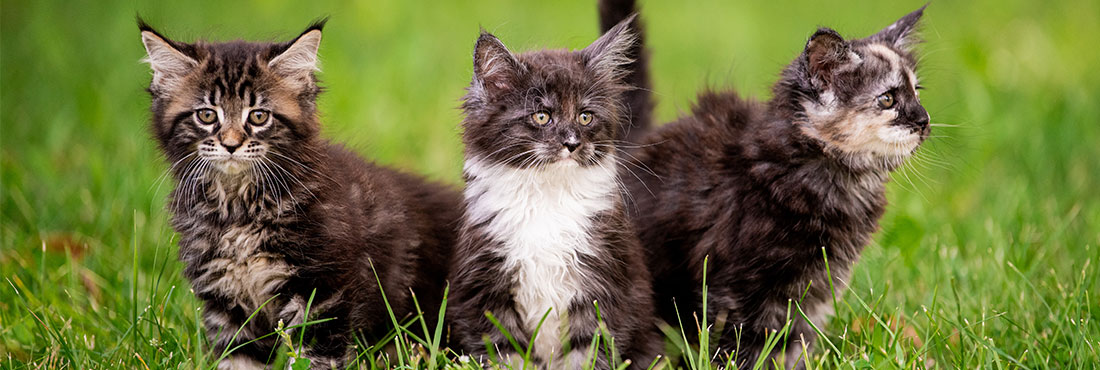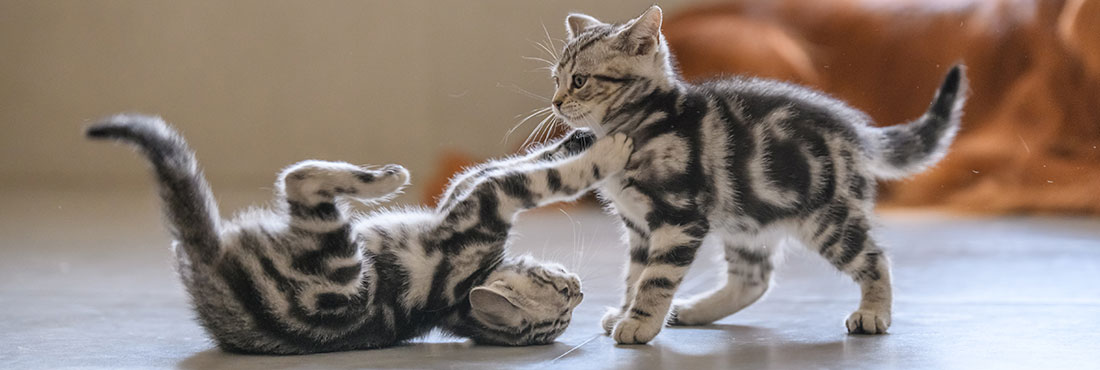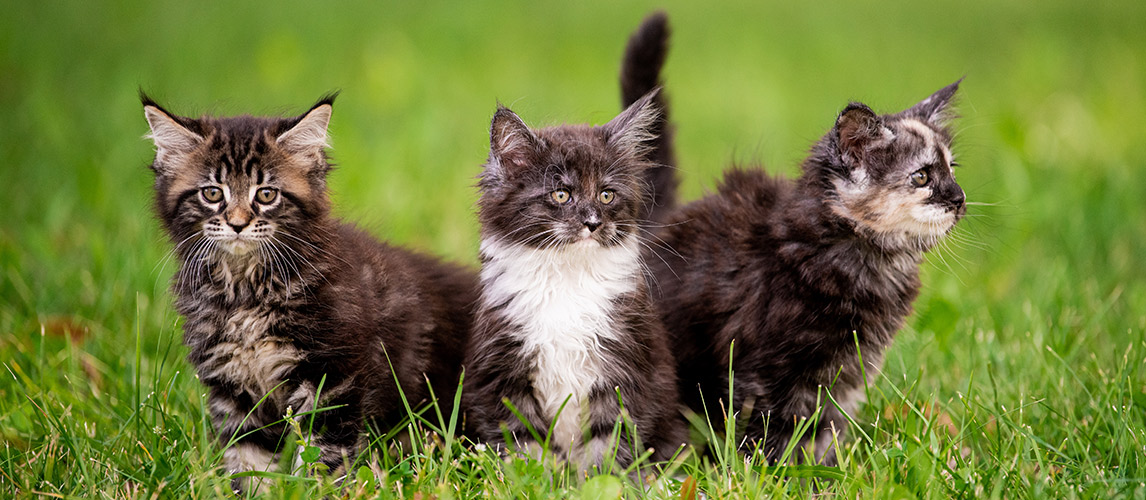Have you ever watched your cat ready to pounce, giving a butt wiggle, and wondered why they are doing this? A cat pouncing can be an impressive sight but why do cats pounce and is it something that you should be concerned about? We’ve researched all the top opinions on cat behavior to compile this easy-to-follow guide on what is going through the mind of your feline friend when they pounce.
Pouncing is Part of Stalking Prey
Cat lovers may see their feline friend as a lovable ball of fur but cats are accomplished hunters. They have a lot of skills that help them stalk and catch prey to eventually kill it and eat it. They have retained most of the skills that are possessed by wild cats and even by the big cats like the mountain lions.
It is the most energy-efficient way of catching prey and saves a lot of running around!
This natural instinct follows a set pattern and every pounce is preceded by stalking. When a cat spots something that they want to pounce on, the ritual starts. In the wild, this would be other animals (such as mice and voles). Domestic cats follow the same pattern but substitute small mammals for toys.
What a Pounce Looks Like
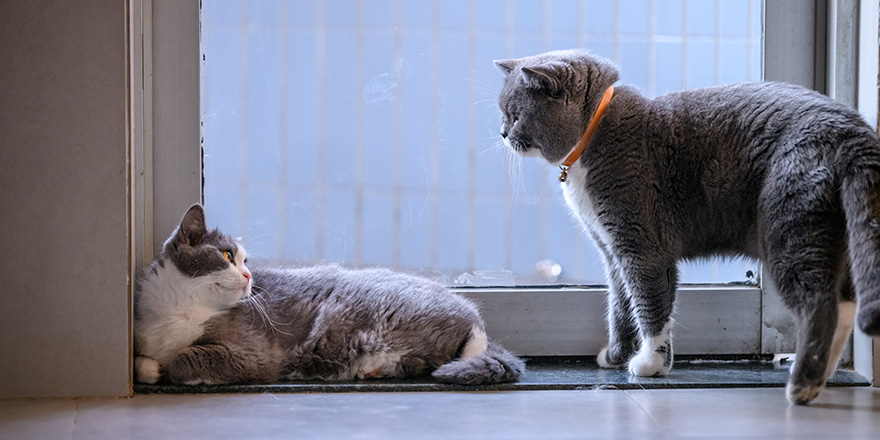
If you have observed your kitty closely, you will have seen that a pounce always starts with stalking. A cat settles into a stalking position and prepares its hind limbs. At this point, cats stare at the toy or whatever else they are fixated on. This is when the butt wiggling starts.
They wiggle their butts just the right amount to get their rear legs in the best position for the most powerful and accurate pounce. A butt wiggle is also how they adjust their energy so that they have enough power. Butt wiggling is critical for a successful pounce!
You may notice that if your cat is focused on a large toy or on large prey, they will wiggle their butts, even more, to get the energy to pounce.
After the pounce, typical behavior is to hit the cat toy with their paw and then pick it up with their paws or mouth and toss it around. This looks as if they are playing with it but they are actually trying to get it into the best position for biting so that they can kill it quickly.
Does a Kitten Pounce for Play?
Kittens love to pounce as a way of perfecting their hunting skills. It’s super cute to see baby cats wiggle their rear end but your kitten is actually learning an important skill. Kittens perfect their pouncing skills by the time they are about two months old!
You can make it more fun by getting them a mouse toy or some interactive cat toys that they can practice stalking and pouncing on.
What is a Cat About to Pounce Thinking?
Stalking and pouncing behaviors are all about the hunt! At this point, your cat does not think that they are playing and are about to pounce on a toy. In their head, they are pouncing on prey to get food to survive!
However, pouncing can also mean that your cat is feeling agitated. In fact, you can often tell how agitated your cat is feeling by observing how their pouncing behavior. The Humane Society suggests that pouncing can be playful, indicating that your cat simply wants to play with you. They may leap at humans in their homes. However, if their tail is twitching and if they are growling, this is not playing! Your cat is agitated and means business so do not go near them as you could get a scratch or a bite.
What Does it Mean When a Cat Pounces?
Pouncing is usually a totally natural behavior and does not indicate that anything is wrong with your kitty. However, it can mean that your cat is upset about something. If they persist with agitated pouncing or if they have some other changes in personality, it is worth getting them checked out by your vet.
There are some medical conditions that cause agitation in cats. These include cognitive dysfunction and hyperthyroidism.
It can also be triggered by changes in your cat’s environment such as a house move or introducing another new pet cat or dog into the household.
Why Does My Cat Pounce at Nothing?
When your cat pounces at nothing, they are probably playing. It is a great way of keeping themselves amused. Cats can show a behavior called play aggression – where they are playing but can get a little rough. If your cat is pouncing at your feet and ankles, you will already know this!
The problem is that cats are used to playing with other cats. They have thick fur and loose skin and it does not hurt when another cat pounces on them or gives them a bite. It is not their intention to hurt you but they may enjoy getting your attention.
Why Does My House Cat Pounce?
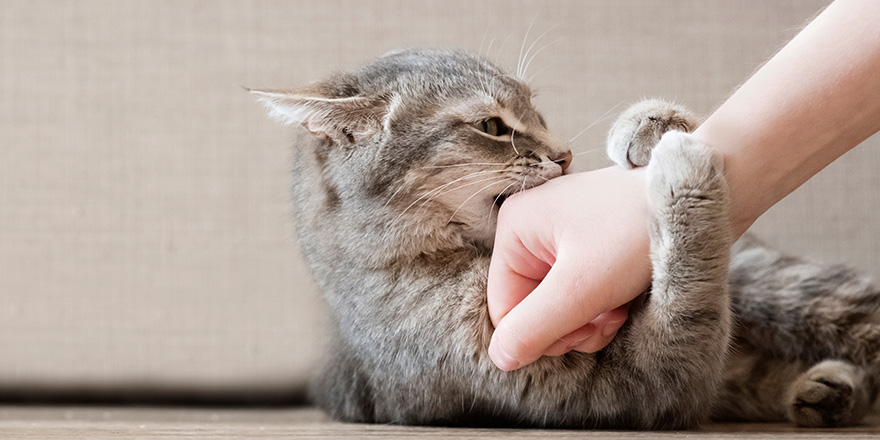
Domesticated cats rarely have to hunt for food. House cats get all the food they need from their loving pet owners. Yet, they still continue to stalk and pounce. This is because these behaviors are ingrained in their nature. Even though they do not have to hunt, they will still feel a compulsion to act in this way.
However, they may be trying to tell you that they want more attention. House cats rely on their humans for entertainment. They can show this by pretending that you are prey and leaping out at you. Just like dogs, cats can suffer from separation anxiety and may miss you a lot when you are out.
Playing Games With Your Cat
Why not use the pouncing behavior as the basis of a game with your cat to provide them with mental and physical stimulation. You could get a mouse toy or a feather wand to flick around. Another option is a laser pointer which cats find fascinating.
Playing with your cat gives you the chance to bond with your pet and to get to know them better.
Sources:
- Understanding feline language – Humans Society
- Why Do Cats Wiggle Their Butts Before They Pounce? – Live Science




